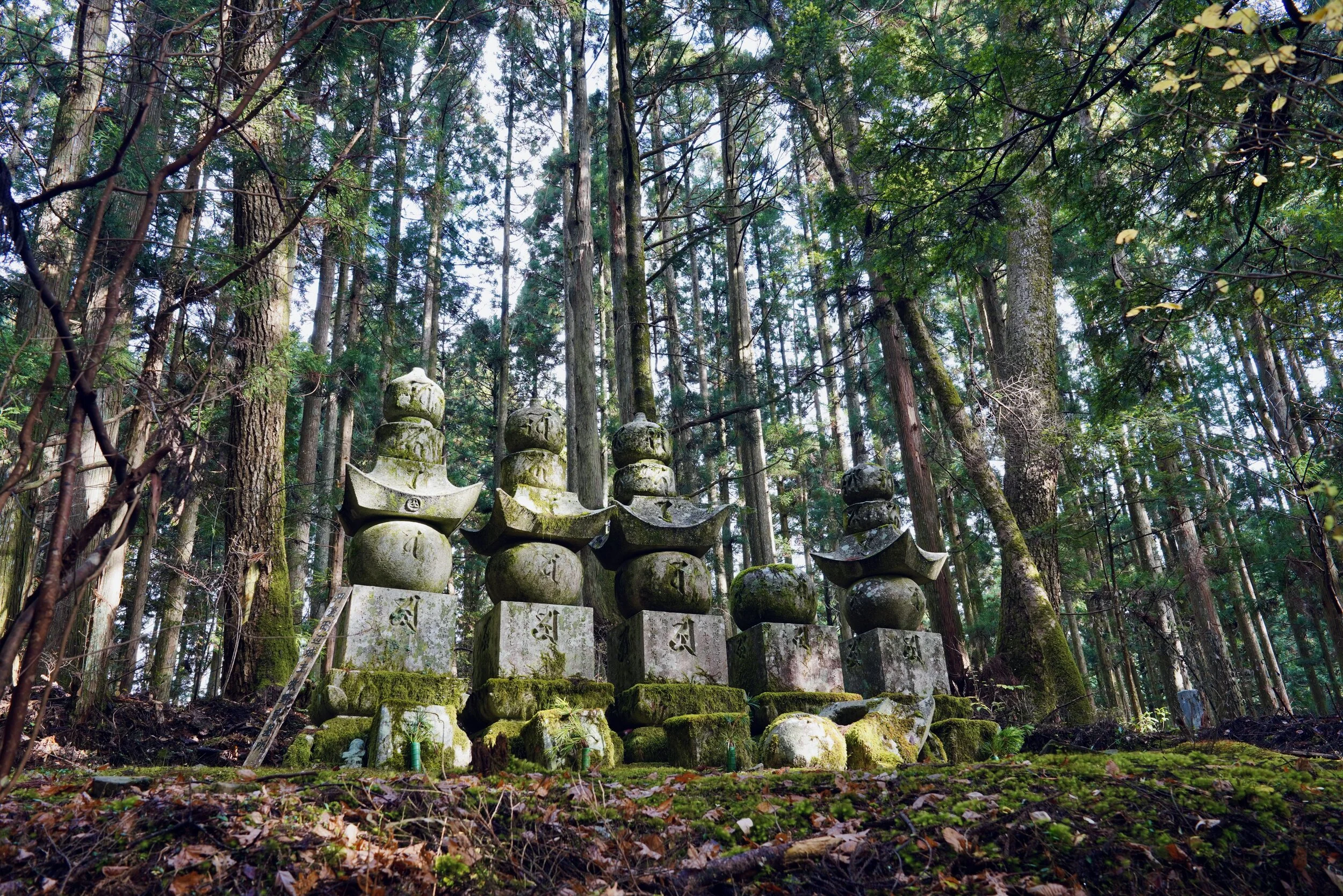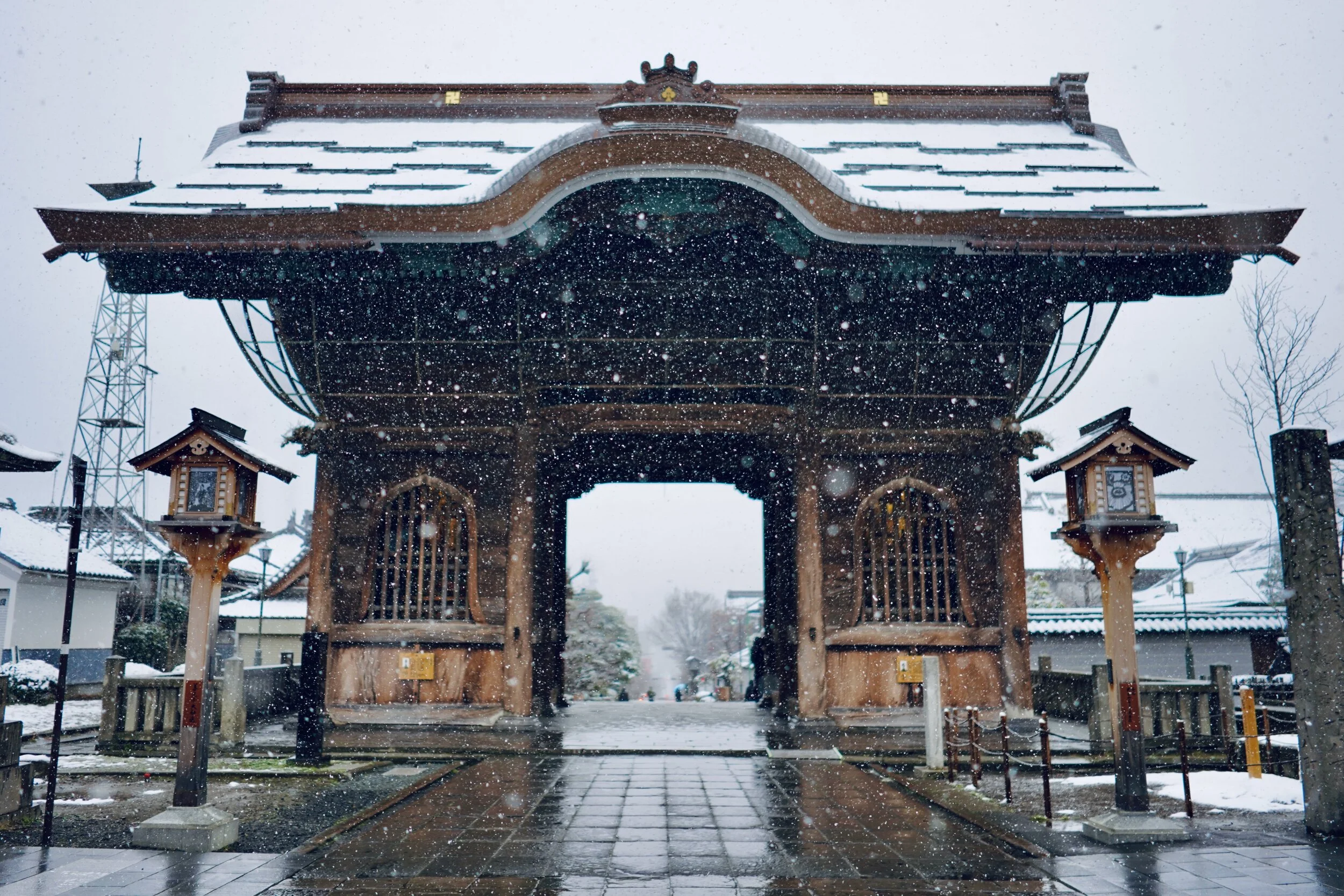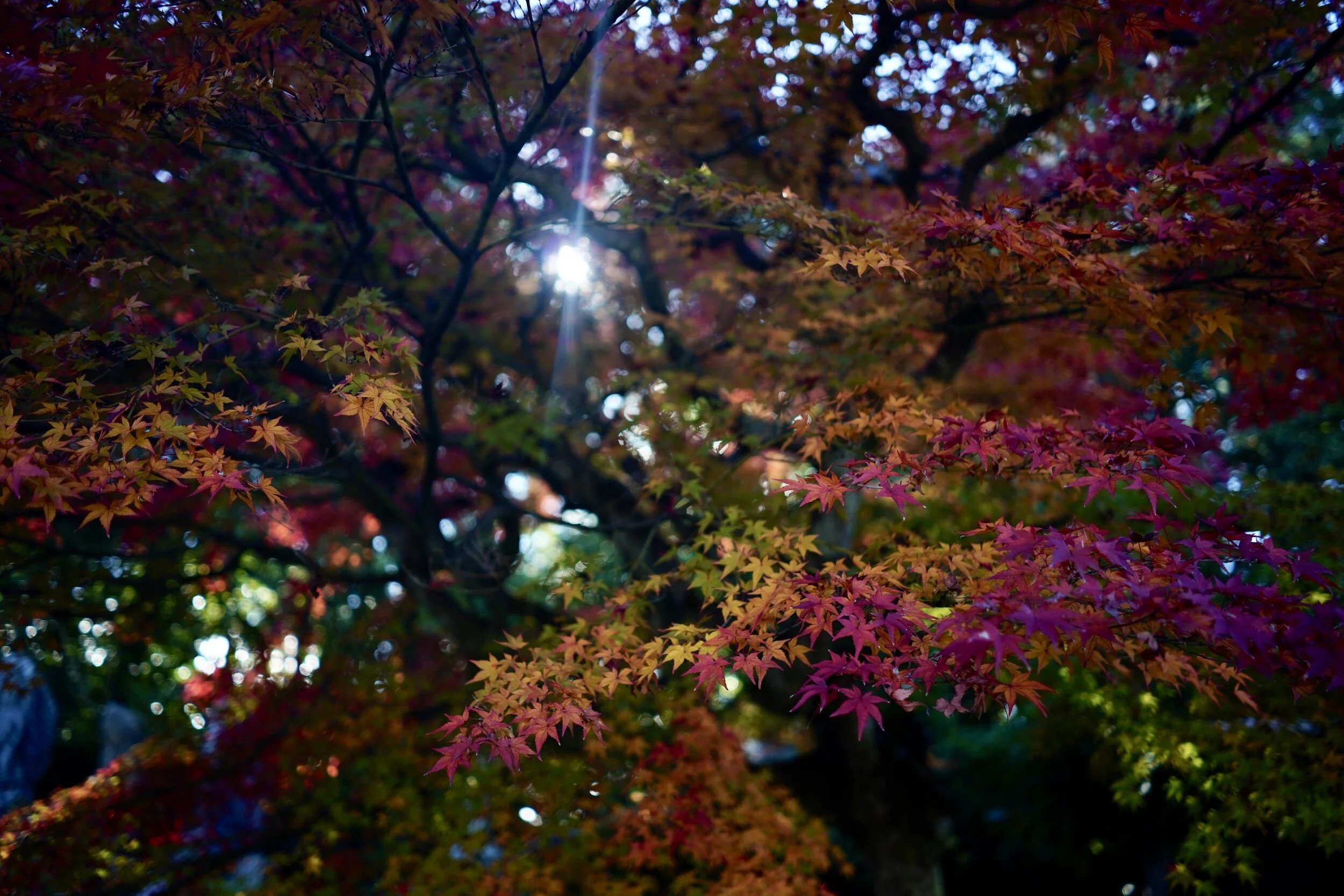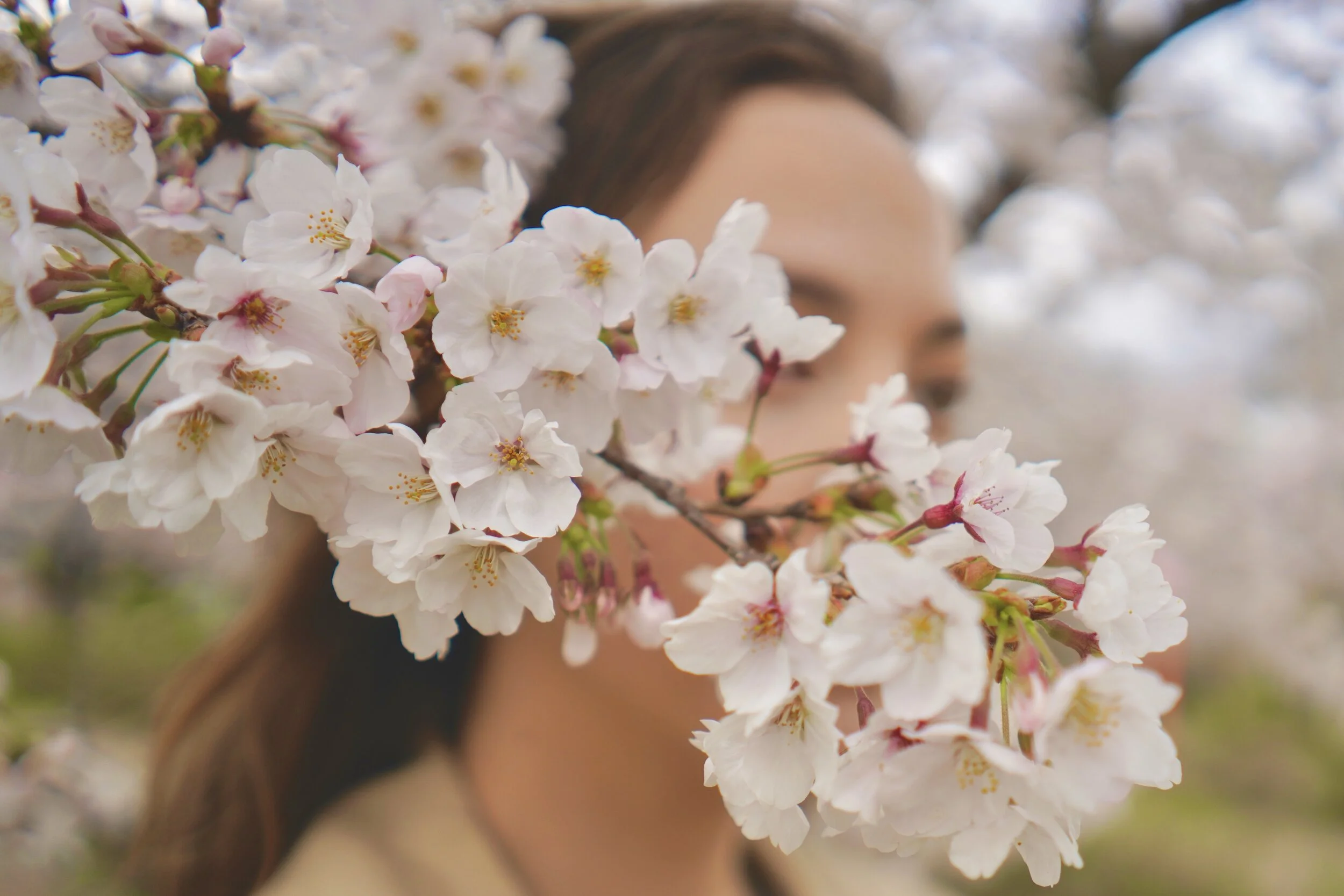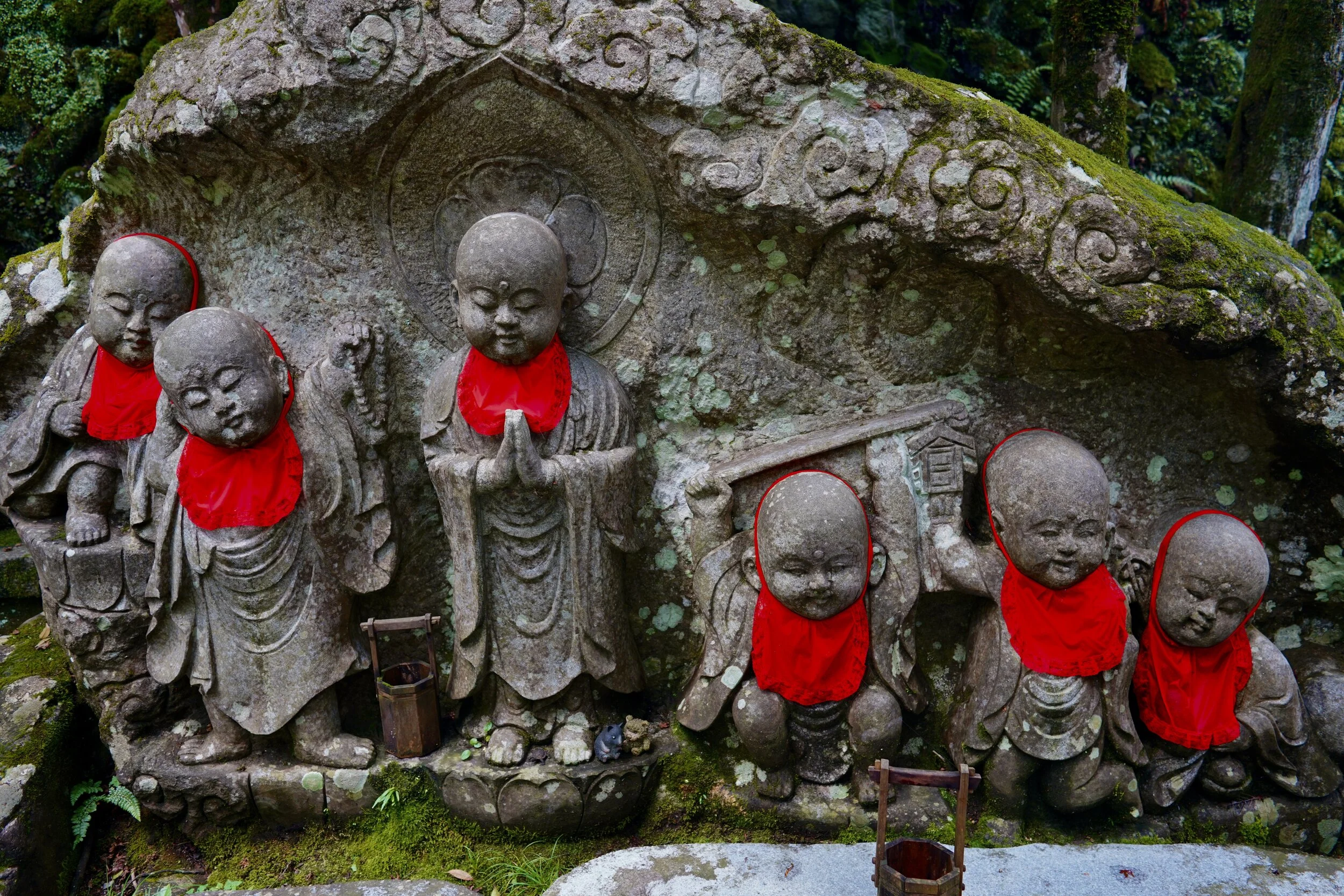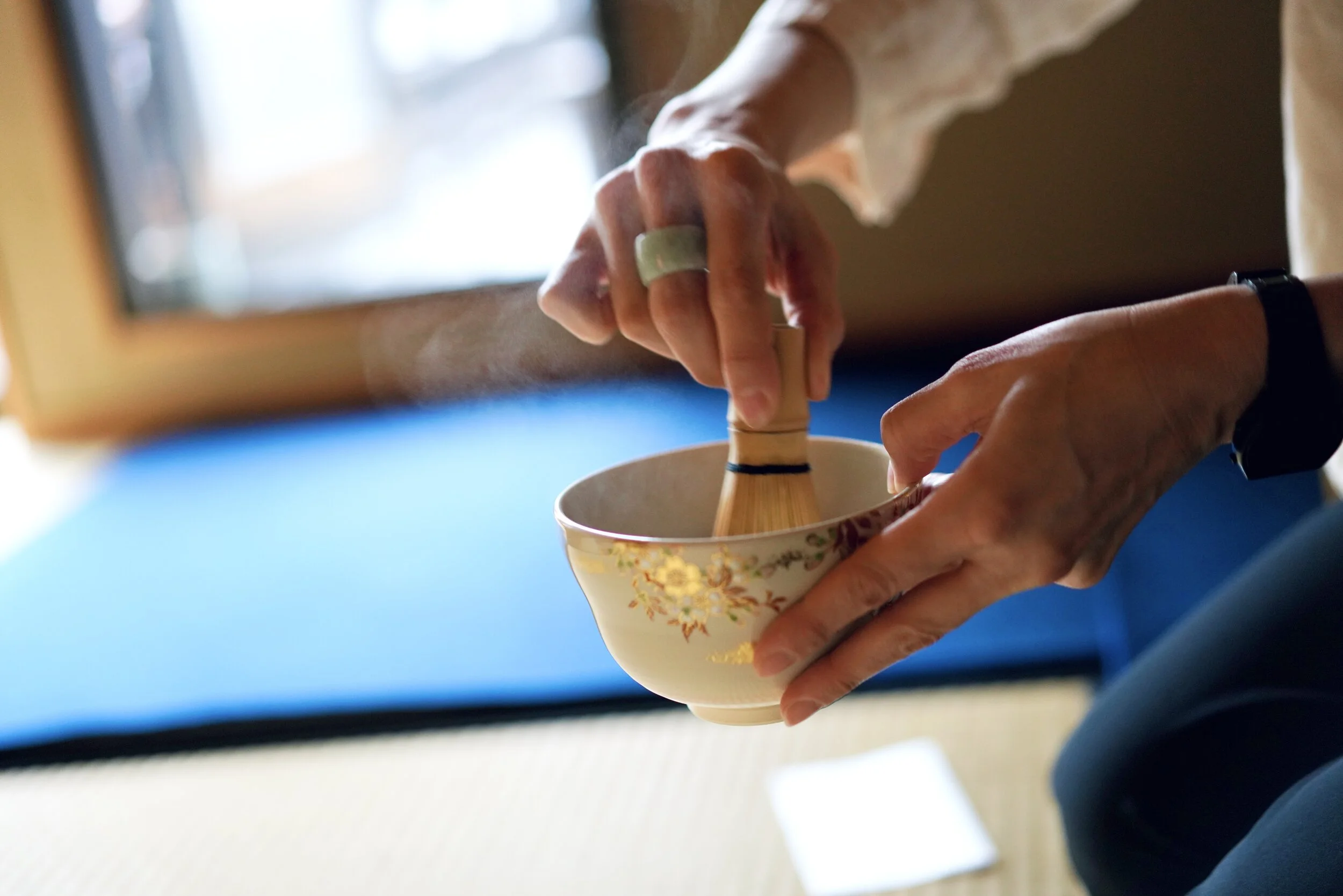In The Mist Of The Heavens
“Your mind is the same as the moon,” he explains to us as puffs of steam pour from our mouths with every frosty breath released into the incense-filled air. I could smell the forest at night, the perfume of dampened earth. My husband and I are listening intently to the words of Nobu-san, a Buddhist monk accompanying us through Japan’s most extraordinary cemetery, resting on top of a sacred mountain; Okunoin Cemetery.
“Your mind begins complete and white and pristine, untainted and unobstructed, and then unexpectedly shifts through the tides of life. Clouds begin to block the glow of the moon, similarly to how negative emotions and thoughts can barricade our joy. Our mind continues to fluctuate into different forms, just as the moon does.”
Nobu-san’s round head is cleanly shaven, his face is smooth and kind. He’s young, yet he speaks as though he’s lived a thousand years. He deliberately pauses and then continues, “The moon has the power to illuminate a thousand surfaces of water if it shines wholly. Our mind is the same. We have the power to affect a thousand people if our mind is clear and pure. We can illuminate everyone with our light.”
A calming blackness swam through the forest like a harmonious wave, blending the living and the dead together as one, creating a special kinship between both worlds. A mysterious shine bounced off every stone, as hazy-lit lanterns outlined the glassy walkway from a recent rain. I don’t remember the last time I ever walked through a graveyard at night, and if I ever did, I certainly did not experience such infinite peace as I did this evening.
Okunoin Cemetery is a renowned treasure to the country of Japan, regarded as the picturesque resting place for over 200,000 admired monks, war lords, samurai, and officials. An otherworldly, massive burial ground, spanning over 2 kilometers of mystical forest, dating back to 816 AD. I could sense the accumulation of centuries beneath the blending of its branches, with cedars standing so giant that they seemed to nearly brush the stars. Strokes of moonlit shadows painted the pathway like calligraphy, and in that very moment, I felt as if I had entered a place where time had stood still.
A forest of such magnificence can only grow ever so slowly. I peer up, astounded by their never-ending wooden cores, strengthened so preciously over time that even the mightiest of winds wouldn’t dare to try to knock them down. Patience, I now understand, is the very root of transformation. I’ve reminded myself of the necessity of patience this past year, gradually and powerfully feeling my insides expand and evolve more than ever before.
We passed stupas known as gorintos by the thousands, as dew hung heavy in the air, coating my eyelashes. Gorintos are Buddhist grave markers constructed of five tiers representing earth, water, fire, wind, and space. I had never before seen gravestones embodied with such rare and distinct design, signifying the interconnectedness of the material world. I found myself moved by the symbolic beauty of each pillar, epitomizing the Buddhist belief that our physical bodies will restore to our original form, returning back to the elements. A brief moment within a bubble of eternity, reminded of the full-circling of life and death.
We had boarded a train the day before from the crowded cement-labyrinth of Osaka to the neighboring farmlands speckled with orange from rows of persimmon trees. We gradually ascended into the misty mountains of the Wakayama Prefecture, as the tracks of the train swerved through a maze of woodland. We arrived to the hauntingly beautiful Mount Koyasan, an ancient establishment reserved as a place of pilgrimage and religious study for Buddhist monks. I suddenly felt my breath softening as the newfound nature engulfed us, leaving the chaos of the modern world behind us.
We were graciously welcomed by Buddhist monks checking into our 1200-year-old temple stay for the evening, directly across the street from Okunoin Cemetery. We slept soundly upon tatami floors and devoured Buddhist vegetarian cuisine known as Shojin Ryori, as we dressed in casual kimonos known as yukatas and enjoyed the pleasant coolness of autumn. We awoke at five the next morning, with the moon still full in the sky. We witnessed an early morning meditation service followed by a ritualistic fire ceremony, devoutly practiced by monks every single day.
We were compelled to explore Okunoin Cemetery once more under the sleepy sheen of dawn. Sporadic flickers of sunlight snaked between branches, highlighting the vibrancy of green within the mossy landscape. I felt momentarily transcended to a higher realm, somewhere between our world and the next. We once again wandered by gravestone after gravestone, so many lives lived out on this earth before us, and I wondered what we truly leave behind once our bodies are no longer ours anymore. Maybe our legacy is the measure of light we radiated out into our finite world, what magnitude of brilliance we brought to others, what judgment we replaced with joy, what surfaces we chose to illuminate.
Our weekend spent in the mist of the heavens was a spiritual experience of profound depth, where the presence of death released more awareness of life. Jeremy and I were bewildered by the slowing of time and of our breath, as our appreciation intensified for the temporary world surrounding us and for our extraordinary existence within it. I did not think once for what I lacked, but my thoughts passed through like a comforting breeze, only carrying with it a gentle nudge of gratitude for simply being alive.
Cheers,
Tera


